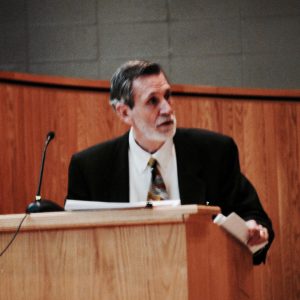
Wednesday night’s Burrillville Town Council meeting hearkened back to the early days of public opposition against Invenergy’s $700 million fracked gas and diesel oil burning power plant planned for the town. Back then, we saw a public that was distrustful of the town council, and a town council that was not receptive to the idea of opposing the power plant, early on claiming to be powerless against the combined might of Invenergy, Governor Gina Raimondo’s office and regulators.
The town council then took the position, contrary to the Open Meetings Act, that people in the town were only allowed to talk about issues and subjects that were specifically listed on the town council’s agenda, cutting off discussion about the Algonquin pipeline if the power plant was on the agenda, or vice versa. In December of last year, calls from the town council to trust them elicited groans of dismay from the audience.
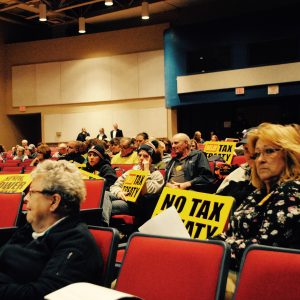 Then, in April of this year, it was learned that the town council had been in secret negotiations for a tax treaty with Invenergy for months. The town council was still forcing residents to only speak about “agenda items” and working hard to curtail public discussion, contrary to the Open Meetings Act. The growing resistance in Burrillville to the power plant felt disempowered. Not only were they fighting a multi-billion dollar power plant company funded by a Russian oligarch, they were fighting both the state and local governments. The fight seemed impossible and trust between the town council and residents couldn’t be worse. Or so they thought.
Then, in April of this year, it was learned that the town council had been in secret negotiations for a tax treaty with Invenergy for months. The town council was still forcing residents to only speak about “agenda items” and working hard to curtail public discussion, contrary to the Open Meetings Act. The growing resistance in Burrillville to the power plant felt disempowered. Not only were they fighting a multi-billion dollar power plant company funded by a Russian oligarch, they were fighting both the state and local governments. The fight seemed impossible and trust between the town council and residents couldn’t be worse. Or so they thought.
At an April 14 town council meeting Council President John Pacheco said that the town council learned about Invenergy’s plans when everyone else did, during a press conference held by Governor Raimondo announcing the plant, saying, “As a town council, we did not know this plant was actually going to happen until the Governor announced it.”
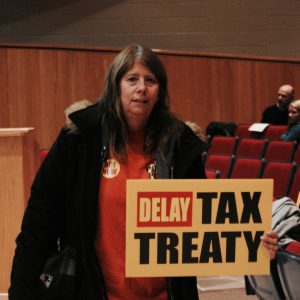 This turned out to be inaccurate. Videos of town council meetings from February and March of 2015, on the town council’s own website, showed the town council and state legislators paving the way for the controversial Invenergy power plant months before the governor officially announced the project. Over time some of the details about how Invenergy approached the town came to light, but the complete story, and who opened what doors to the power plant, has yet to be revealed.
This turned out to be inaccurate. Videos of town council meetings from February and March of 2015, on the town council’s own website, showed the town council and state legislators paving the way for the controversial Invenergy power plant months before the governor officially announced the project. Over time some of the details about how Invenergy approached the town came to light, but the complete story, and who opened what doors to the power plant, has yet to be revealed.
The town council eventually came to a public position regarding the power plant: The town council would put on a public display of strict neutrality, taking no position for or against the power plant, until after all the advisory opinions from various town boards had been completed. This was so as to appear to not influence the outcomes of the various advisory opinions and give the Energy Facilities Siting Board (EFSB) a reason to suspect that the opinions might be slanted in some way.
 State legislators Cale Keable and Paul Fogarty went a different route. They entered legislation at the state level that if passed, would give voters in Burrillville the ability to approve or reject any tax treaty negotiated between the town council and Invenergy.
State legislators Cale Keable and Paul Fogarty went a different route. They entered legislation at the state level that if passed, would give voters in Burrillville the ability to approve or reject any tax treaty negotiated between the town council and Invenergy.
The bill passed the House and was due for consideration and a vote in the Senate when the town council passed a resolution in opposition to the Keable Bill at the 11th hour, giving the Senate Judiciary Committee enough of a reason to vote down the bill. The relationship between the town council and residents was now overtly acrimonious. There were tears from Town Councilor Kimberly Brissette Brown and anger and accusations from Town Councilor Donald Fox. Residents spoke of feeling “humiliated” at the State House as the press release announcing the resolution was sprung on them by Senators Frank Lombardi and Steven Archambeault, who treated the residents with risible condescension.
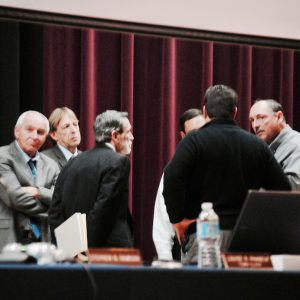
Since that low point, the town council and residents worked to rebuild trust. Residents by this time were long past being held to arbitrary and incorrect readings of the Open Meetings Act. They spoke their minds, expressed their concerns and the town council, to their credit, finally seemed to be listening. They seemed to come together as a town when Governor Gina Raimondo visited to hear resident concerns about the power plant.
After the lengthy process of creating the advisory opinions concluded, the town council passed an extremely robust resolution opposing the power plant and asked other city and town councils in and around Rhode Island to join them in opposition. Many already have and many more are considering joining Burrillville in opposition to the plant. But the Burrillville Town Council’s opposition came with a caveat: They still planned to sign a tax treaty with Invenergy, a tax treaty that the town residents want to hold off on signing.
At issue is the timing. The town council maintains that they have negotiated a solid tax treaty that will protect the town in the event the power plant is built, and guarantee a steady stream of income to the town. The residents want to wait until after the EFSB decides on Invenergy’s application before signing any treaty. Right now, the power plant’s application is suspended, pending Invenergy’s search for a new source of water. Signing the tax treaty, say residents, gives Invenergy extra leverage in negotiating a deal with another municipality, like, let’s say, Woonsocket, to purchase water. The town’s opposition to the power plant must be unified and consistent. Opposing the power plant with a resolution sends one message, signing a tax treaty with Invenergy sends another.
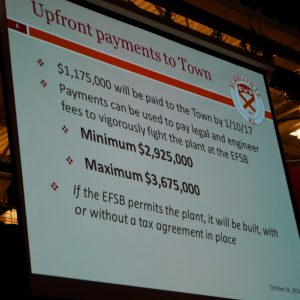 At Wednesday night’s hearing, Attorney Michael McElroy, who negotiated the tax treaty, said that the opposing the power plant and signing a tax treaty were not inconsistent actions and would not be seen that way. “I want to make it… clear that I see no inconsistency between entering into these agreements and dead set opposition to the plant,” said McElroy.
At Wednesday night’s hearing, Attorney Michael McElroy, who negotiated the tax treaty, said that the opposing the power plant and signing a tax treaty were not inconsistent actions and would not be seen that way. “I want to make it… clear that I see no inconsistency between entering into these agreements and dead set opposition to the plant,” said McElroy.
But McElroy is a lawyer. He is not a business man trying to buy water to cool a power plant. What businessman wouldn’t mention the tax treaty as proof that the town council is actually okay with having the power plant sited in their town? The resolution in opposition will be described behind closed doors as merely political theater, something to satisfy the rubes while the real business of government is imposed by the movers and shakers in secret meetings paid for with political contributions.
McElroy did his best to sell the tax treaty to the residents. He spent 45 minutes outlining the deal, expressing the need for a treaty. One reason McElroy gave, that didn’t sit well with residents, was that, “I want to get paid.” The money generated by this tax treaty will give the Town of Burrillville the money it needs to fight the siting of the power plant all the way to the Supreme Court, if need be. The lawyers and experts needed to fight such a case cost money, said McElroy, who included himself in those expenses.
McElroy suggested that if the town council did not pass the tax treaty, Invenergy might pull it off the table. He assured the audience that contrary to what Conservation Law Foundation senior attorney Jerry Elmer says, the plant will be built without a tax treaty in place.
Residents weren’t buying it. Towards the end of what turned out to be a five hours plus meeting, it was obvious that the town’s people were not willing to drink the tax treaty Kool-Aid. Forty people spoke against passing the tax treaty. Two spoke in favor of trusting the town council and McElroy’s advice.
Ultimately the town council recessed without doing anything on the tax treaty. There is a plan to take up the issue again next week.
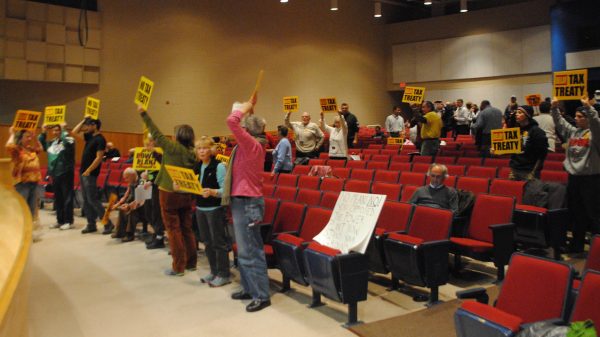

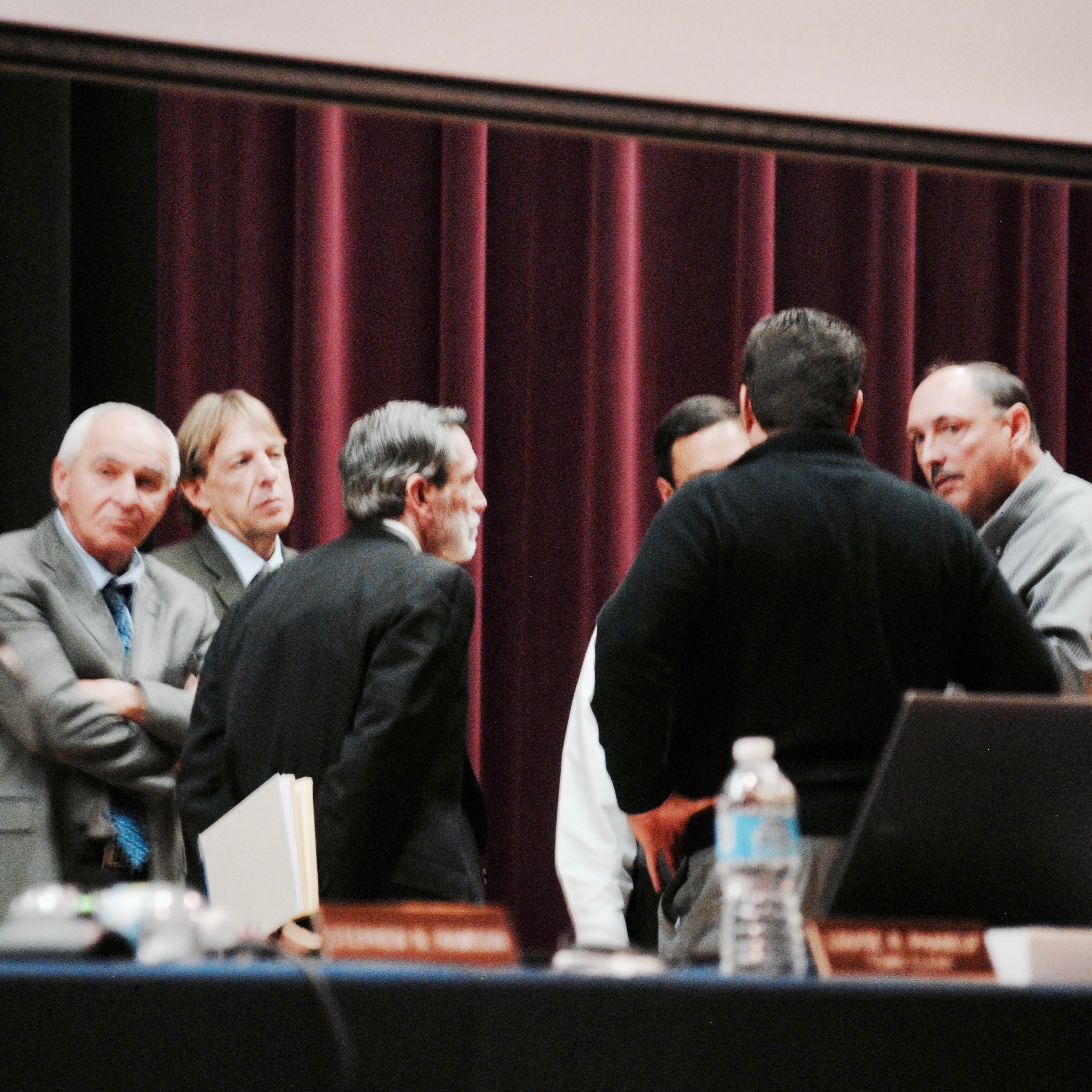
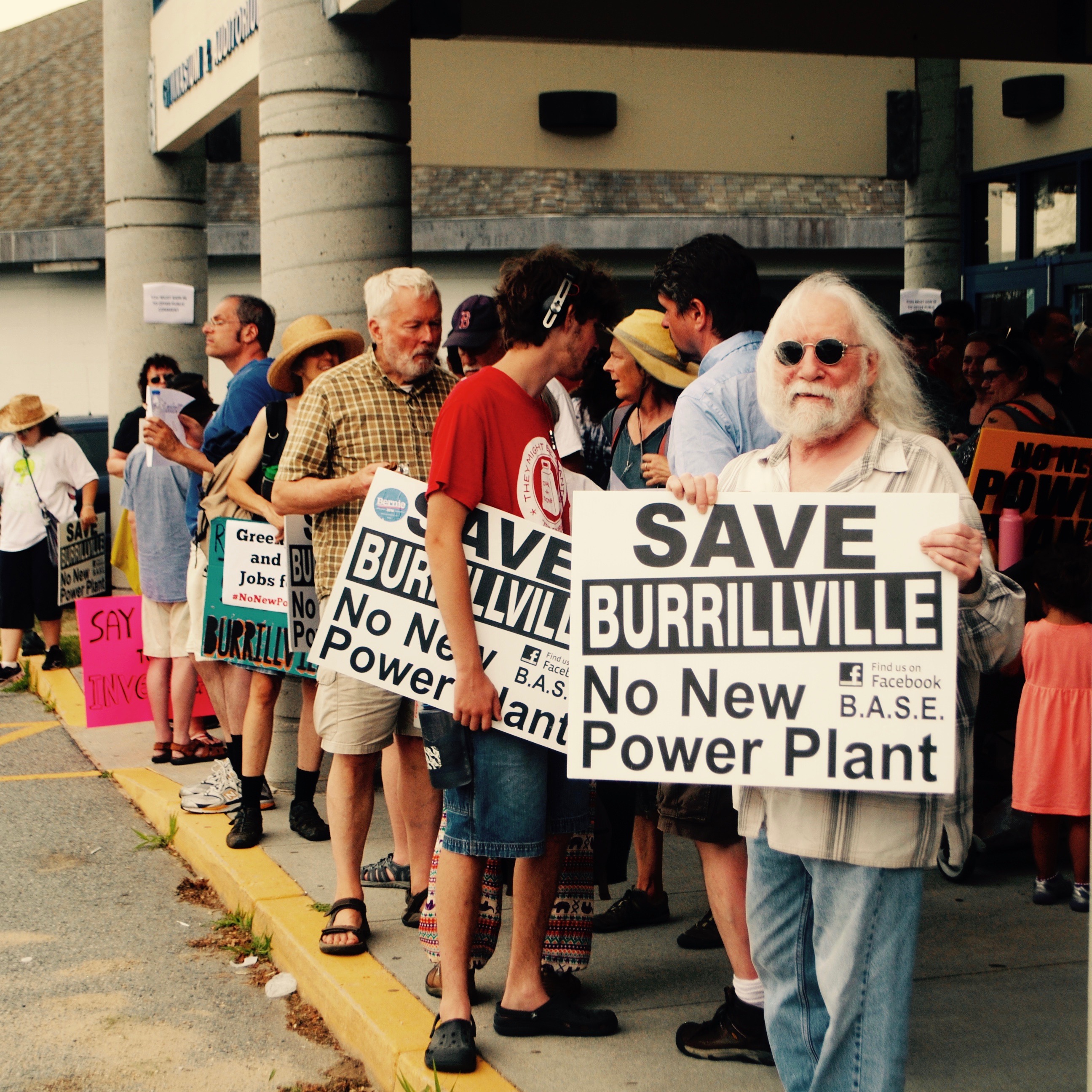
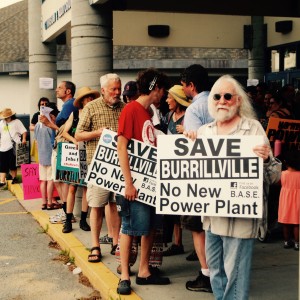 On Wednesday the Burrillville Town Council will be discussing the proposed tax treaty with Invenergy, the company that wants to build a $700 million fracked gas and diesel oil burning power plant in the town. The timing of this discussion could not be worse. Invenergy just successfully petitioned the Energy Facilities Siting Board (EFSB), the governmental body tasked with with approving or rejecting the plant, for a
On Wednesday the Burrillville Town Council will be discussing the proposed tax treaty with Invenergy, the company that wants to build a $700 million fracked gas and diesel oil burning power plant in the town. The timing of this discussion could not be worse. Invenergy just successfully petitioned the Energy Facilities Siting Board (EFSB), the governmental body tasked with with approving or rejecting the plant, for a  Attorney Alan Shoer, of Adler Pollock & Sheehan, has been representing Invenergy during their application process in front of the EFSB. A look at Shoer’s
Attorney Alan Shoer, of Adler Pollock & Sheehan, has been representing Invenergy during their application process in front of the EFSB. A look at Shoer’s 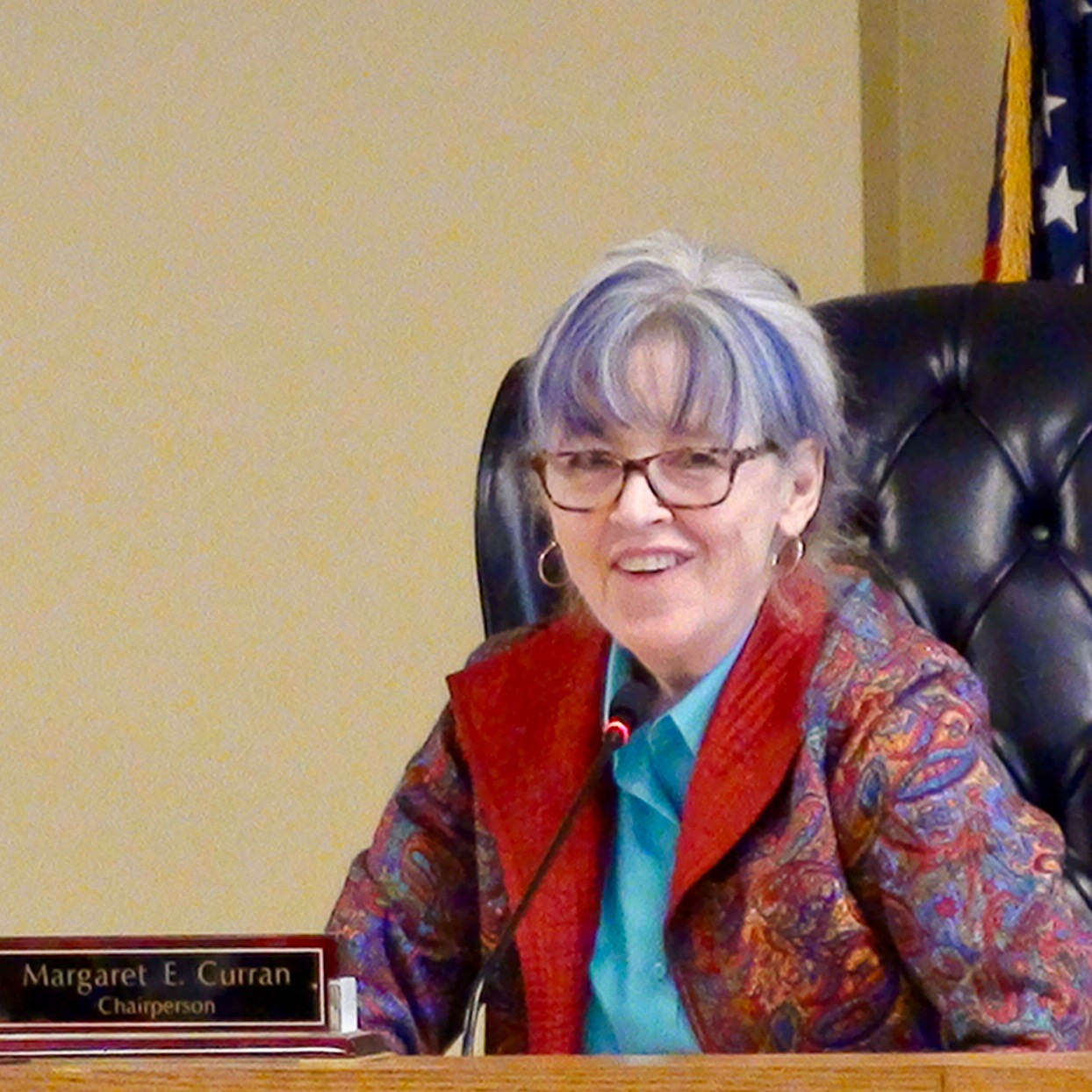
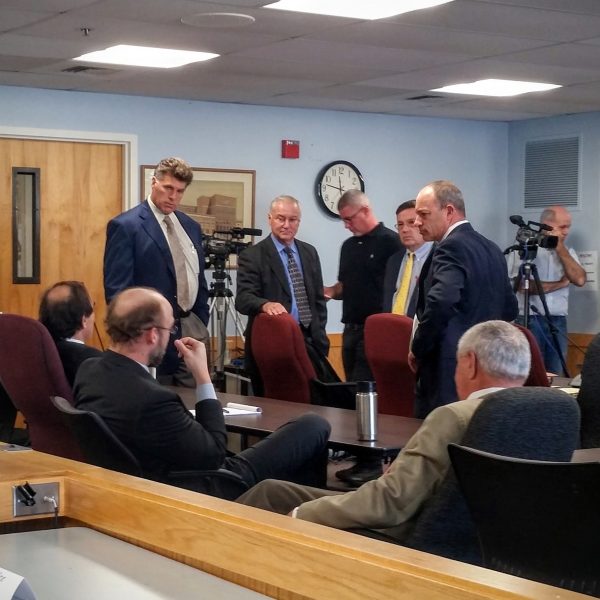
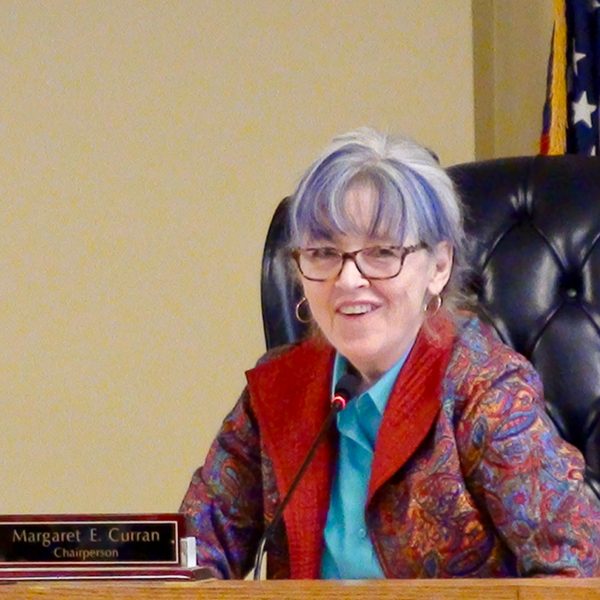
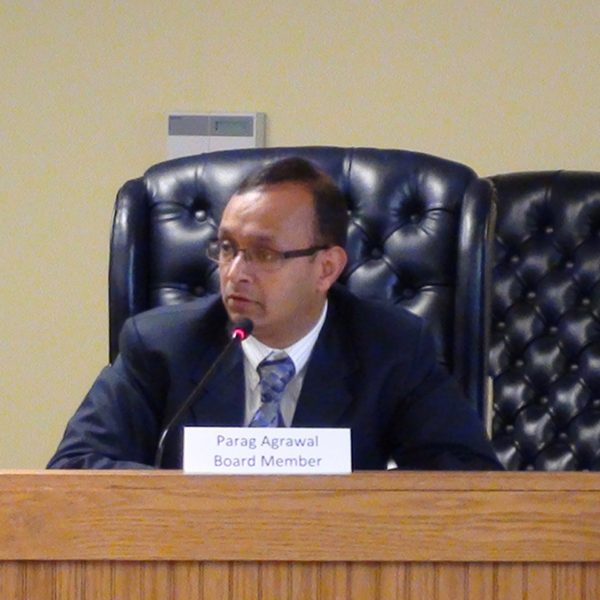


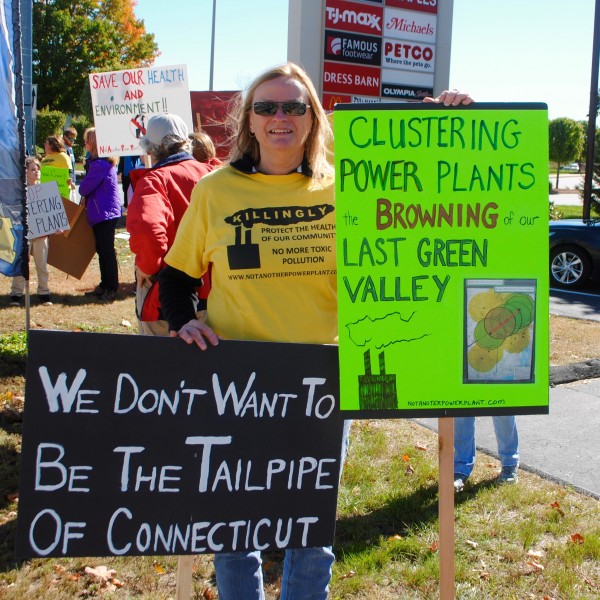 As large as Invenergy‘s $700 million fracked gas and diesel oil burning power plant would be if it were to be actually built in the pristine wilderness of Burrillville, the project is but a small part of a colossal, three-state fracked gas infrastructure project that has been in development for years in the northwest corner of the Rhode Island and beyond. Eight power plants currently litter a 31 mile expanse of pipeline, from Killingly, Connecticut, through Rhode Island, to Medway, Massachusetts. If built, Burrillville would be power plant number nine and Killingly is the proposed site of power plant number ten.
As large as Invenergy‘s $700 million fracked gas and diesel oil burning power plant would be if it were to be actually built in the pristine wilderness of Burrillville, the project is but a small part of a colossal, three-state fracked gas infrastructure project that has been in development for years in the northwest corner of the Rhode Island and beyond. Eight power plants currently litter a 31 mile expanse of pipeline, from Killingly, Connecticut, through Rhode Island, to Medway, Massachusetts. If built, Burrillville would be power plant number nine and Killingly is the proposed site of power plant number ten.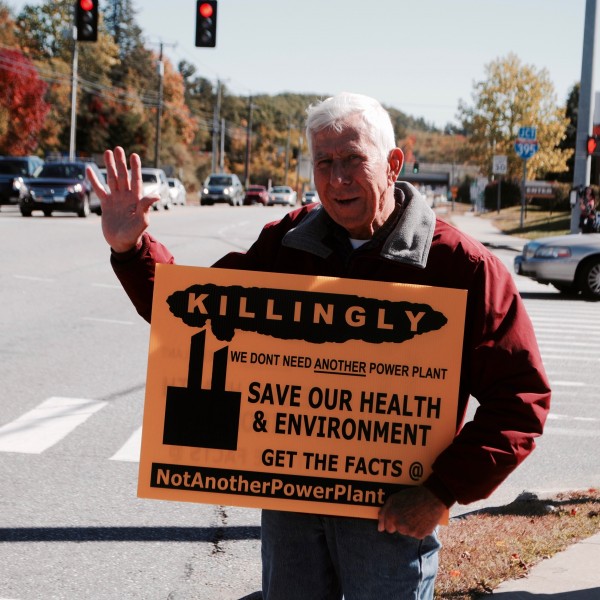 The Killingly power plant is to be built in a residential neighborhood within a mile of 460 Killingly housing units. At least five schools and day cares, over 5,000 students, are within three miles of the proposed plant. Wyndham County, where Killingly is located, has asthma rates 18 percent higher than the rest of Connecticut.
The Killingly power plant is to be built in a residential neighborhood within a mile of 460 Killingly housing units. At least five schools and day cares, over 5,000 students, are within three miles of the proposed plant. Wyndham County, where Killingly is located, has asthma rates 18 percent higher than the rest of Connecticut. The Town of Killingly is categorized as a distressed community. Like other areas where these types of facilities are targeted, there are environmental justice issues to be considered. Very often the facilities are like these are aimed at low income communities that lack the financial means to either fight the power plant or resist the financial carrots dangled by the company building the plant.
The Town of Killingly is categorized as a distressed community. Like other areas where these types of facilities are targeted, there are environmental justice issues to be considered. Very often the facilities are like these are aimed at low income communities that lack the financial means to either fight the power plant or resist the financial carrots dangled by the company building the plant.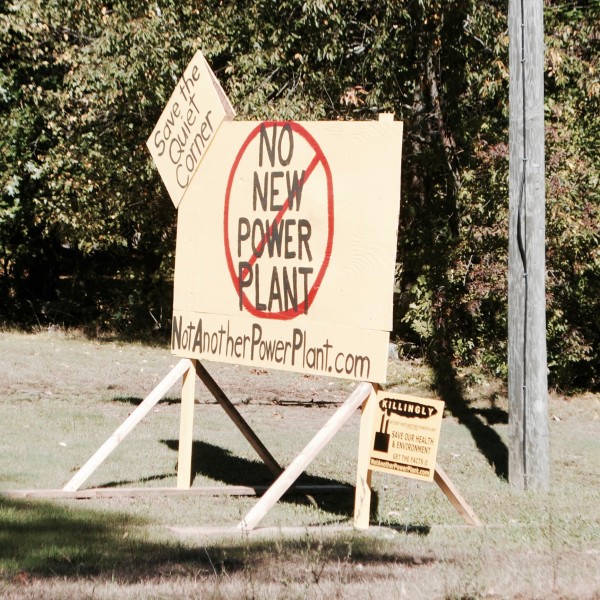
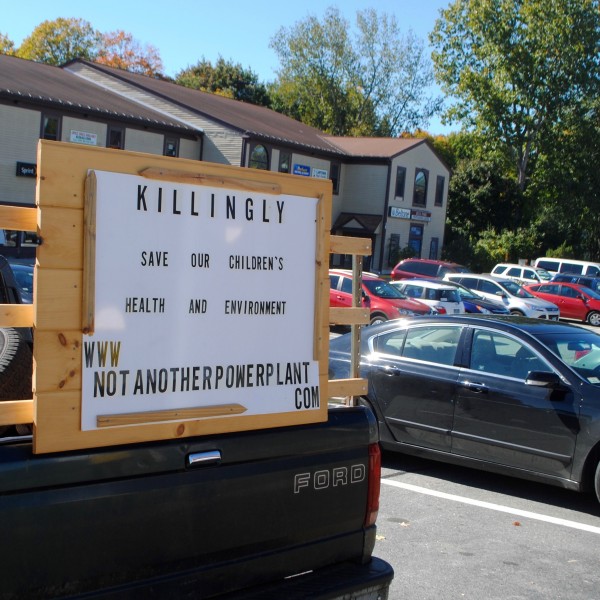
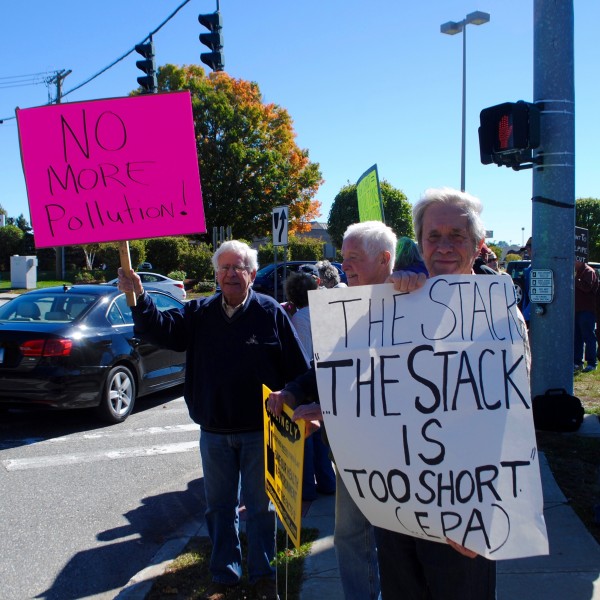
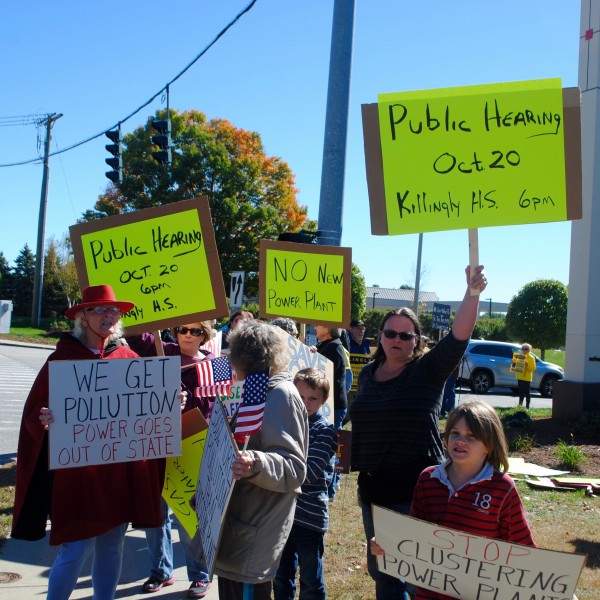
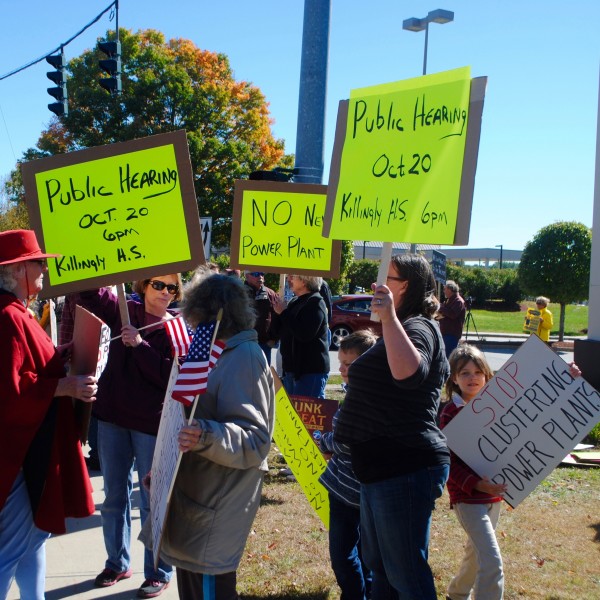
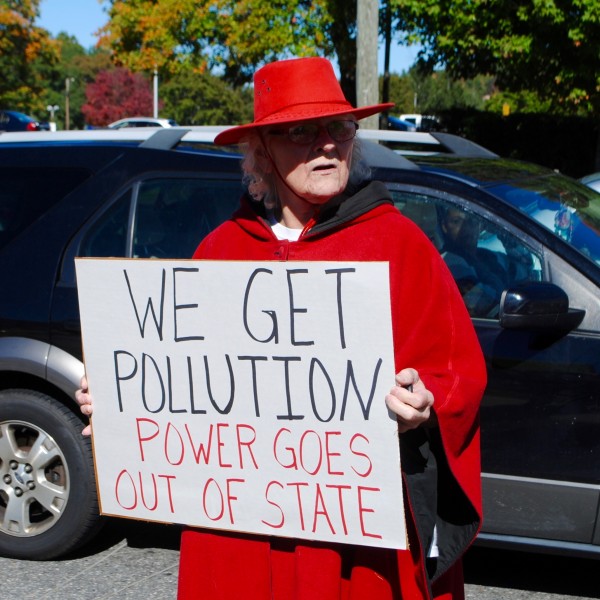
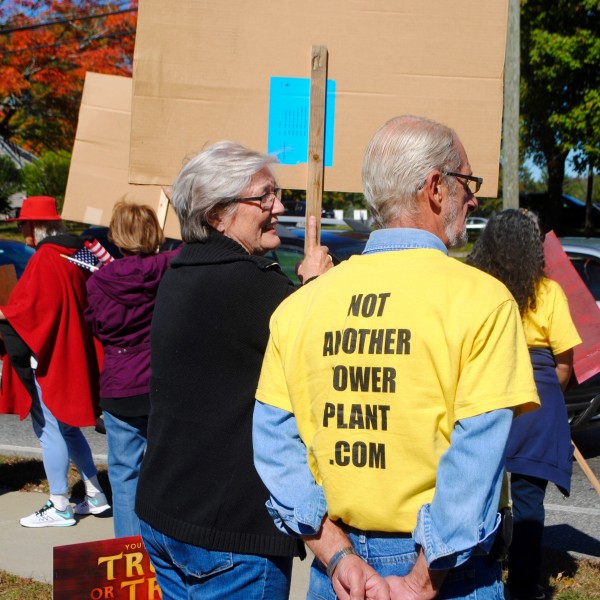
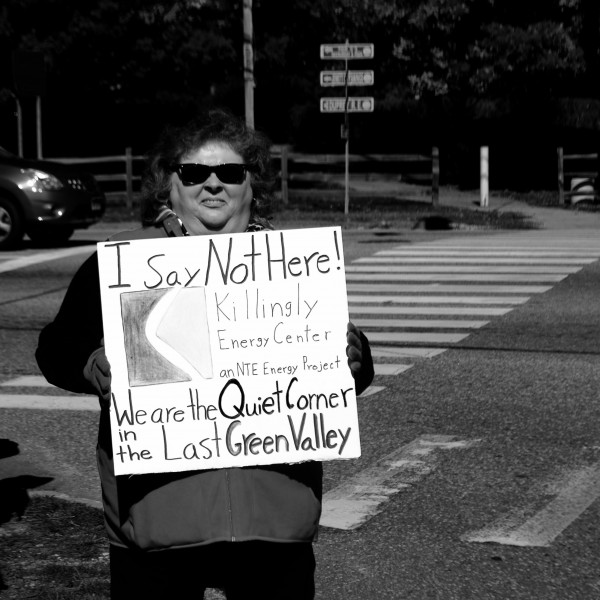
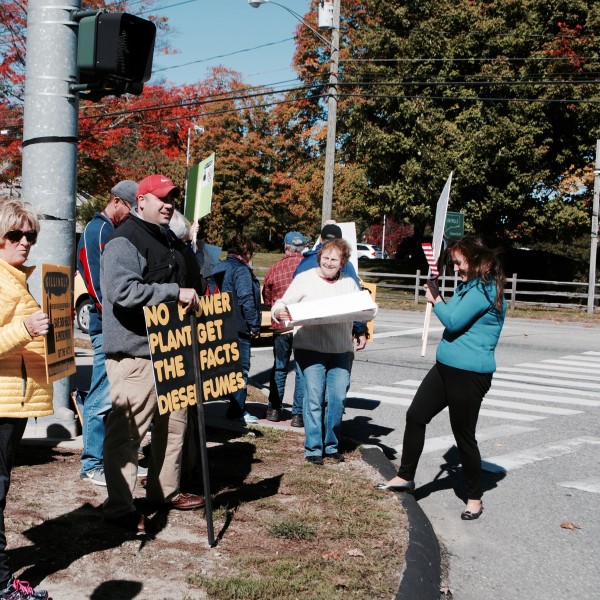
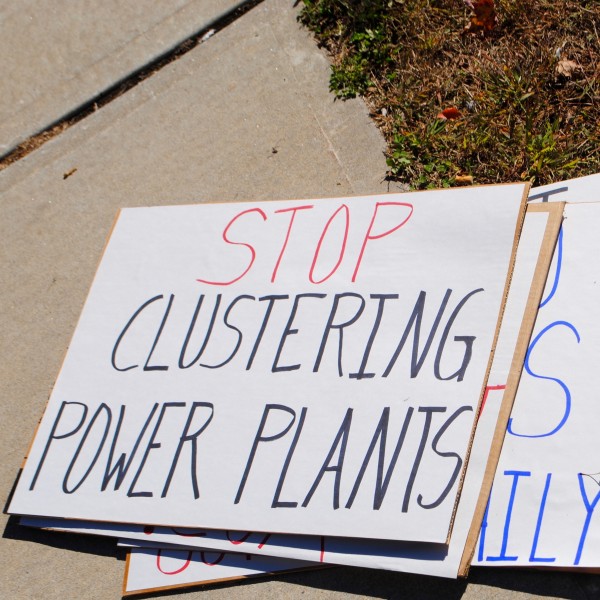
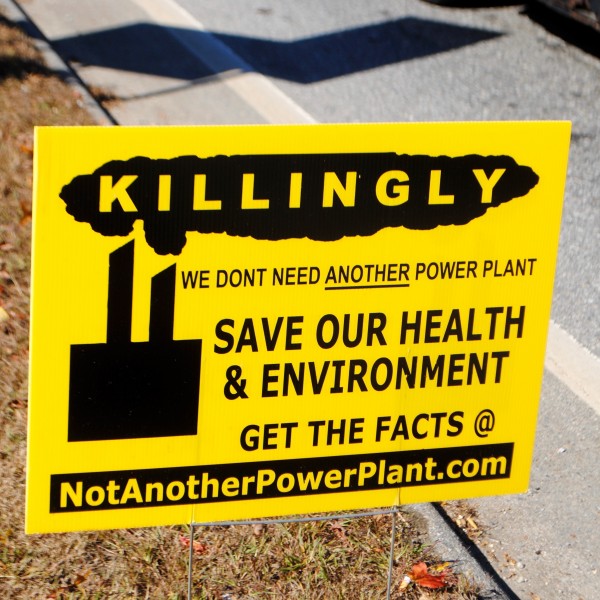
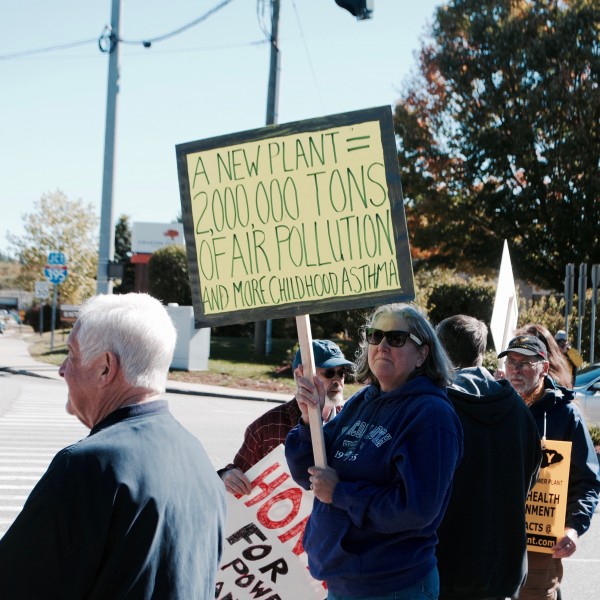
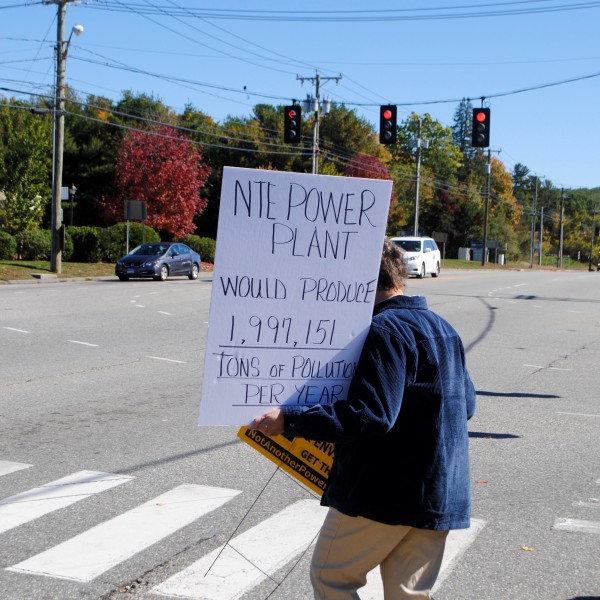
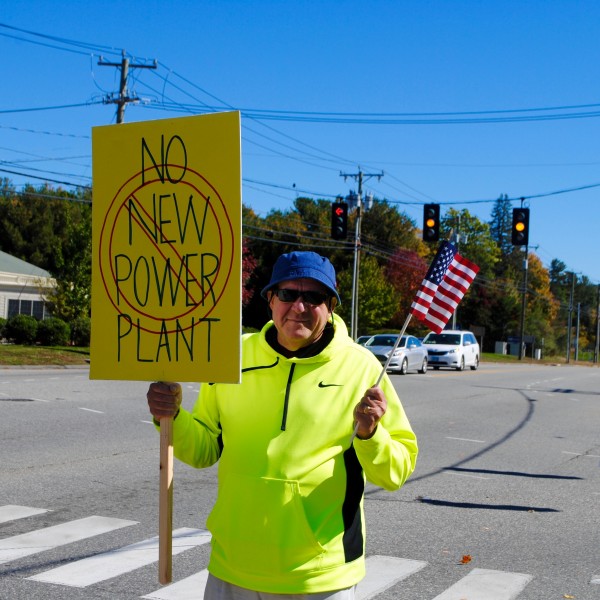
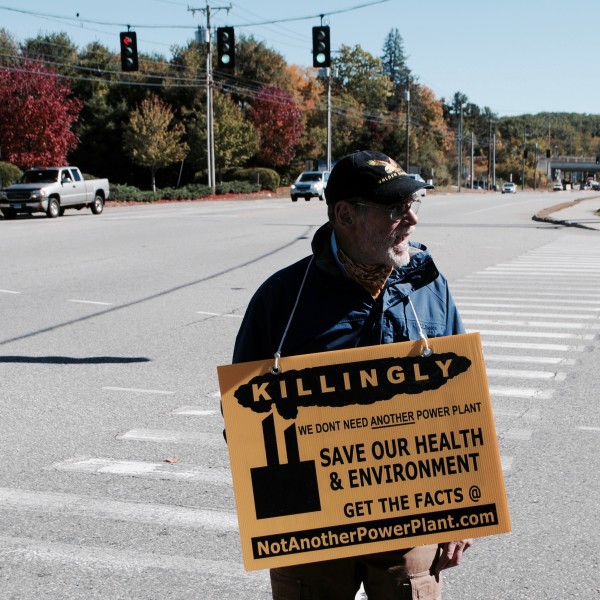

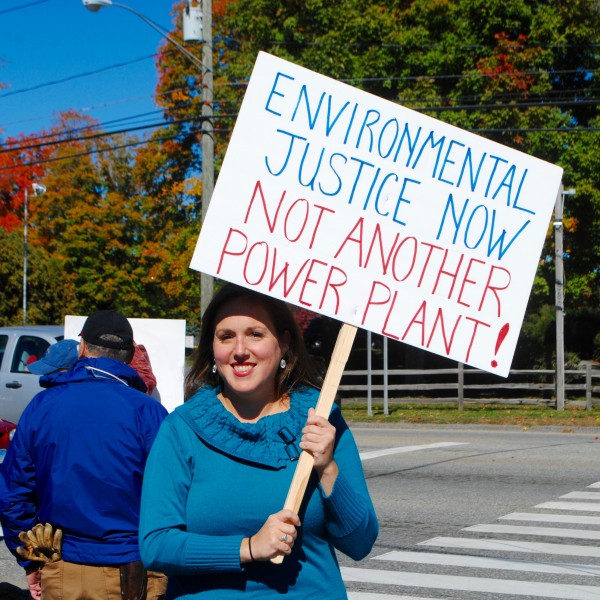
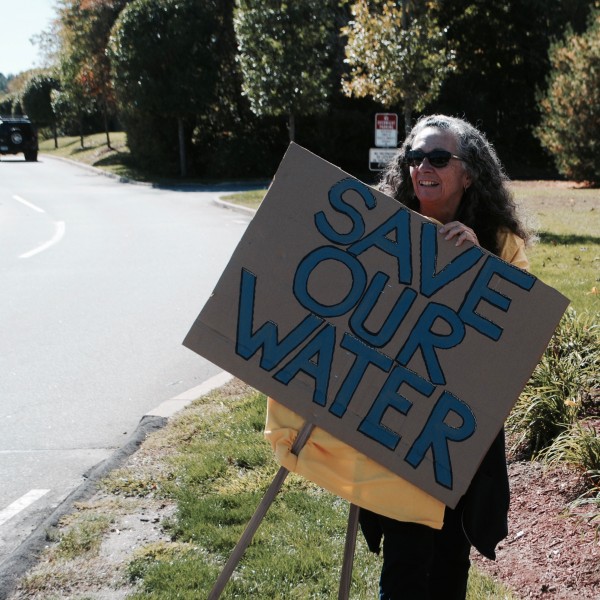
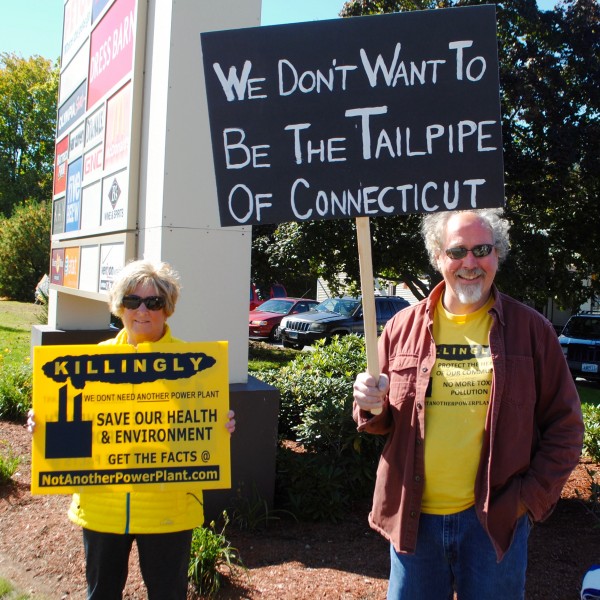

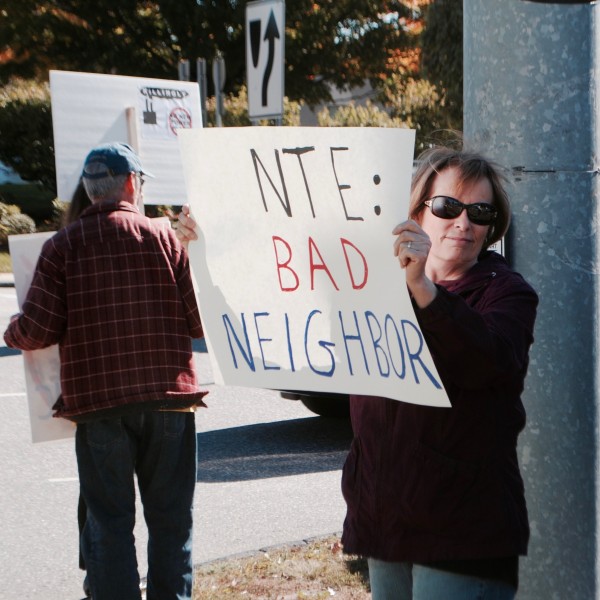
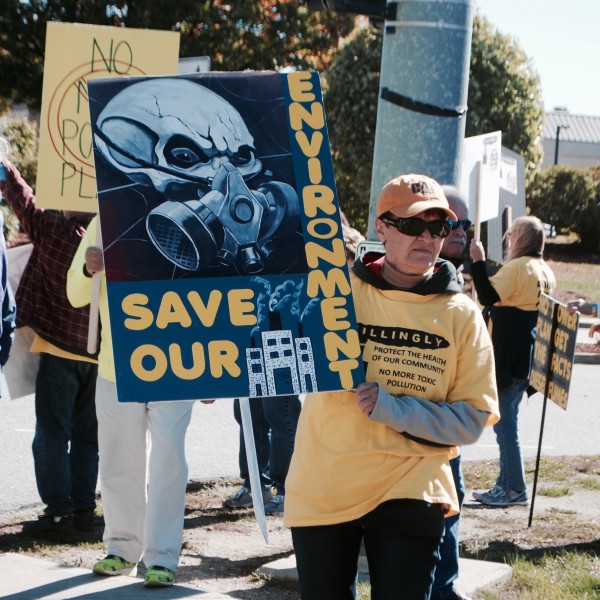
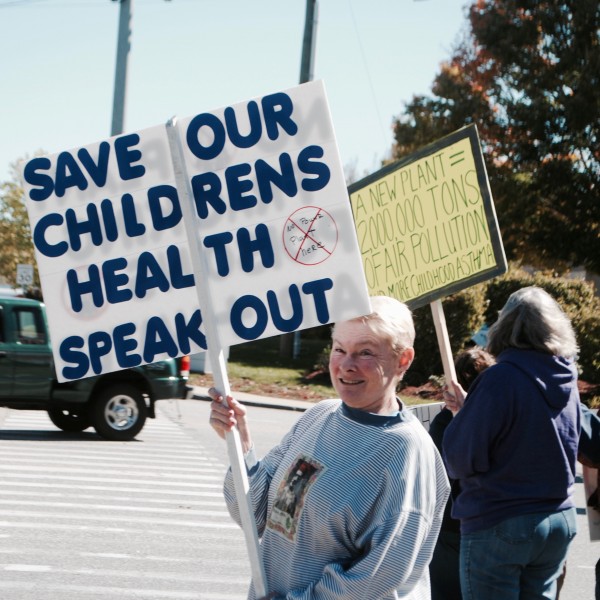
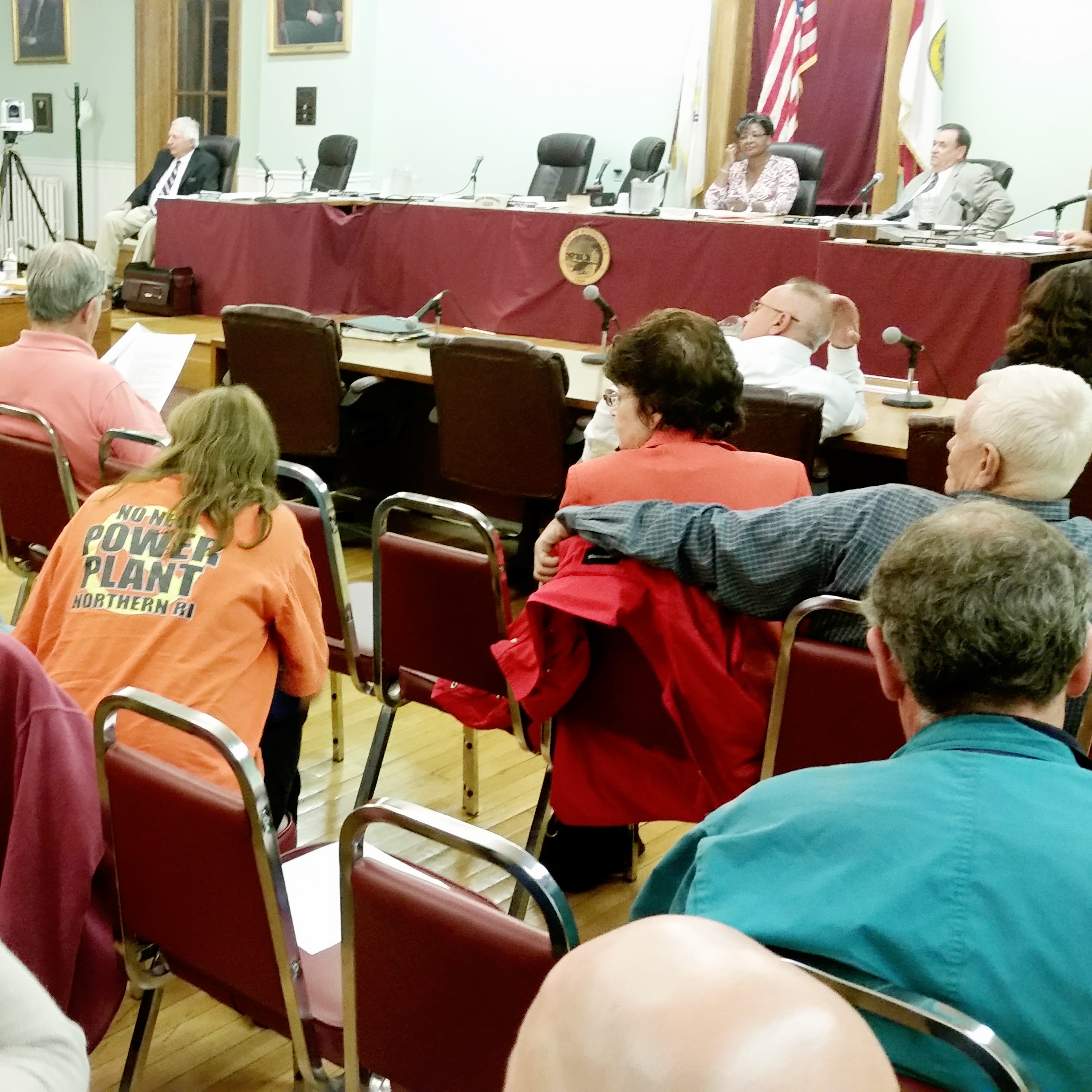
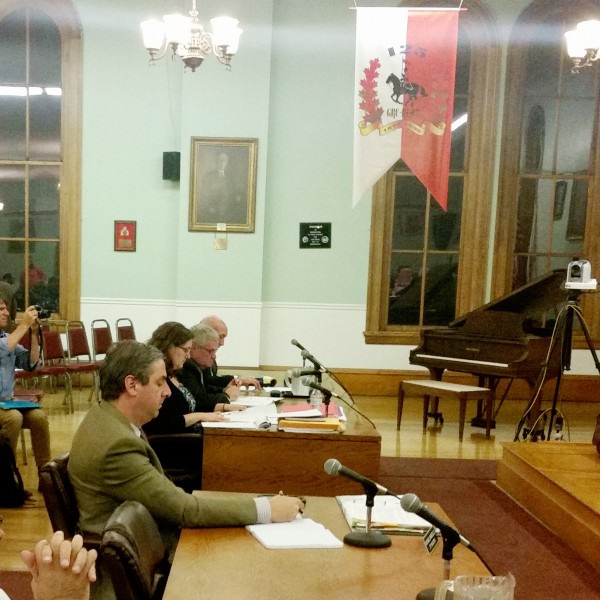
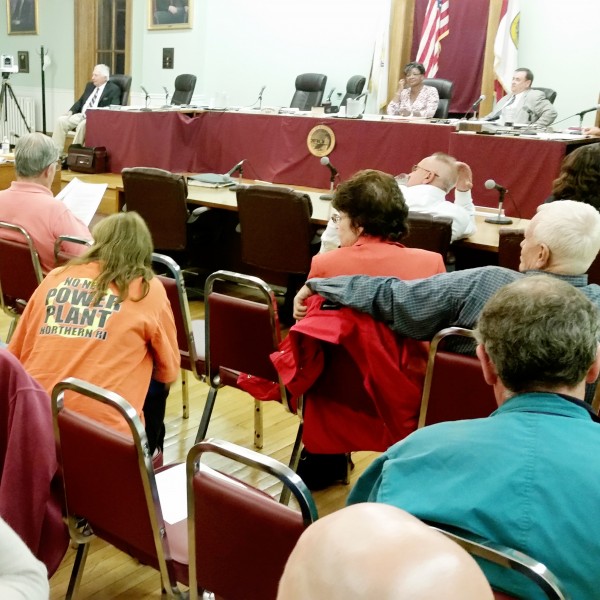 Gendron asked two questions. The first concerned rumors that Invenergy was in negotiations to locate the power plant in Woonsocket, as an alternative to locating the plant in Burrillville, where there has been fierce local and statewide opposition. The second concerned the possible sale of water to Invenergy, for the plant planned for Burrillville.
Gendron asked two questions. The first concerned rumors that Invenergy was in negotiations to locate the power plant in Woonsocket, as an alternative to locating the plant in Burrillville, where there has been fierce local and statewide opposition. The second concerned the possible sale of water to Invenergy, for the plant planned for Burrillville.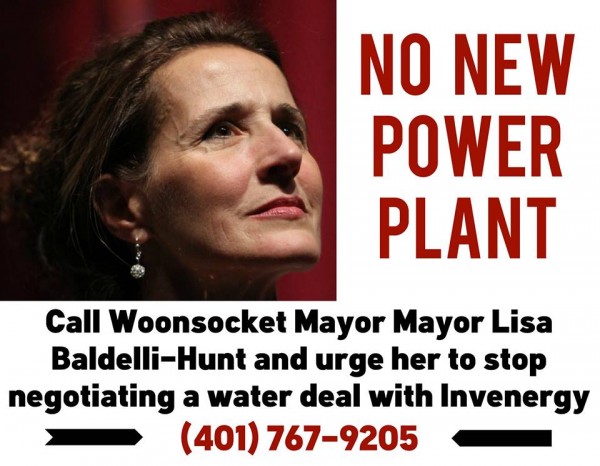 “But with regard to your second question,” said Marcello, “you received a briefing in closed session, and that’s where that information must lay right now. In closed session.”
“But with regard to your second question,” said Marcello, “you received a briefing in closed session, and that’s where that information must lay right now. In closed session.”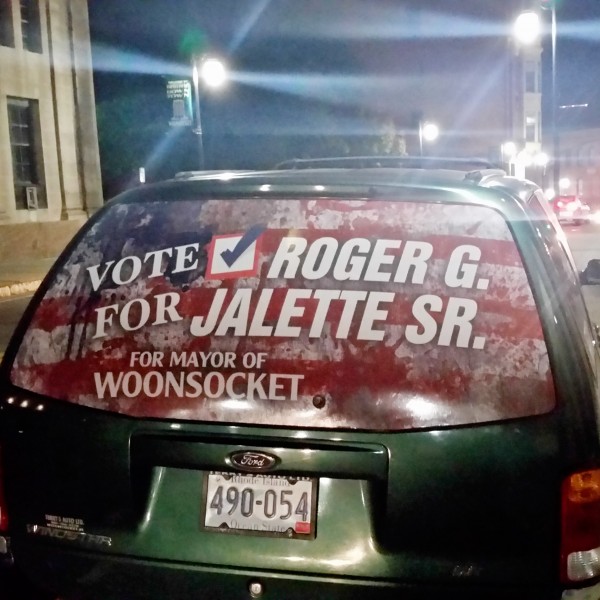 “I put this item on the agenda tonight,” said Gendron, “for discussion purposes… that is what precipitated the executive session that took place prior to this meeting.” The item was “an effort to bring out the truth,” said Gendron. “I think that we needed to start this talk, we needed to squelch some of the rumors.” The solicitor denied completely that there was a power plant coming to Woonsocket, said Gendron. Before today, “none of [the city council] knew what was going on, and that was the benefit of the executive session.”
“I put this item on the agenda tonight,” said Gendron, “for discussion purposes… that is what precipitated the executive session that took place prior to this meeting.” The item was “an effort to bring out the truth,” said Gendron. “I think that we needed to start this talk, we needed to squelch some of the rumors.” The solicitor denied completely that there was a power plant coming to Woonsocket, said Gendron. Before today, “none of [the city council] knew what was going on, and that was the benefit of the executive session.”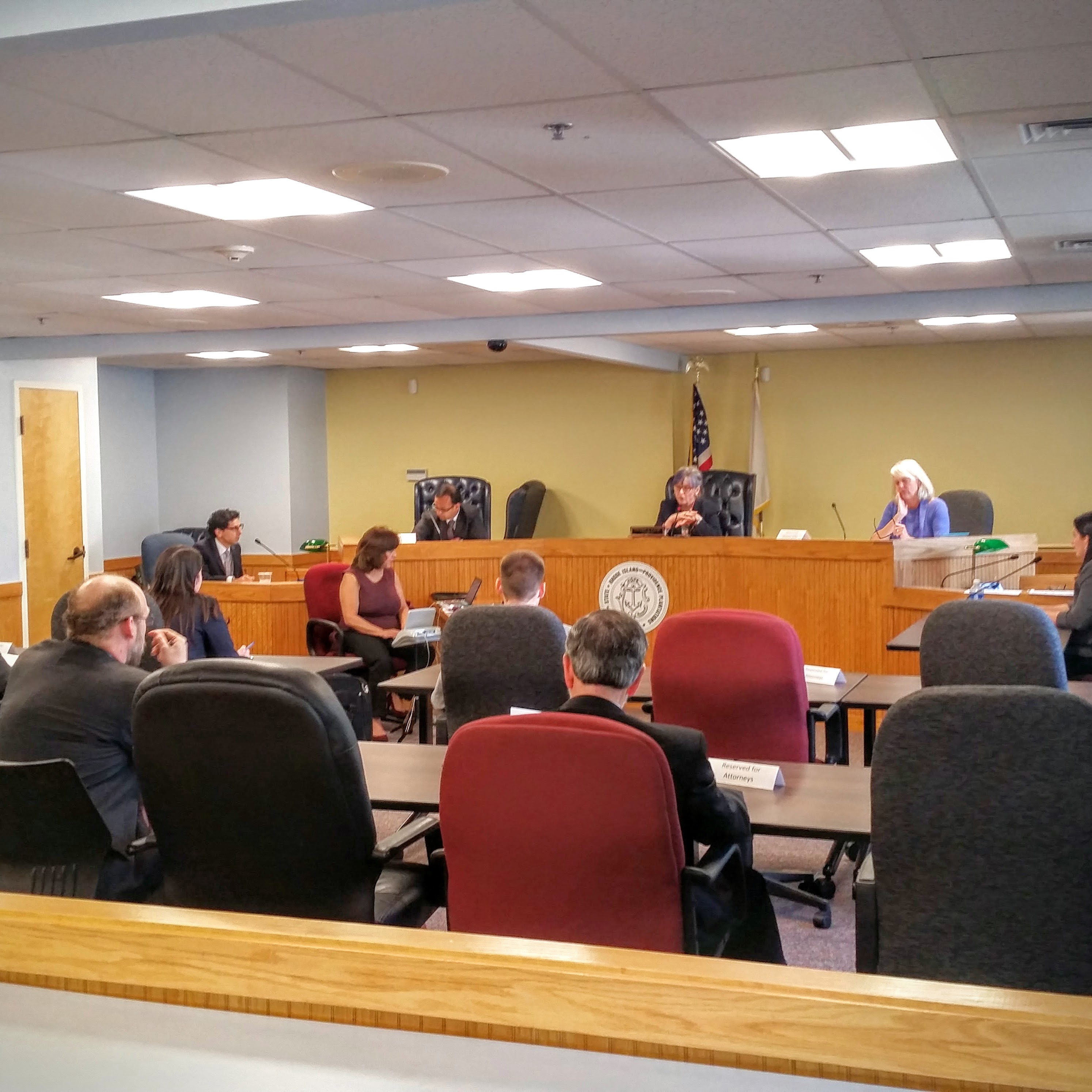
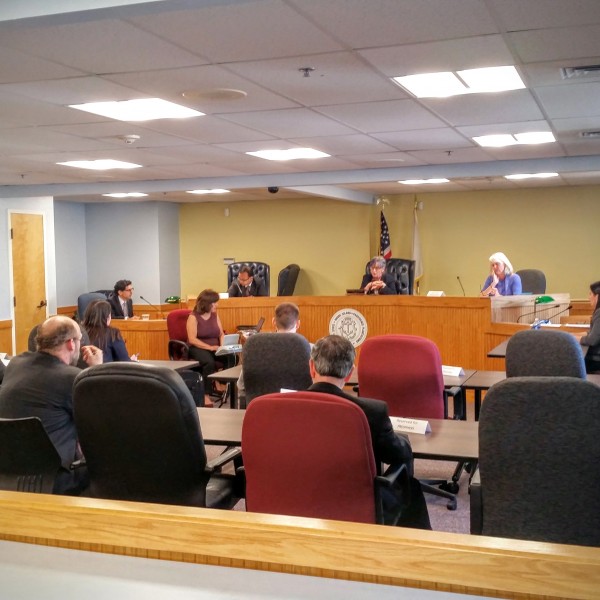
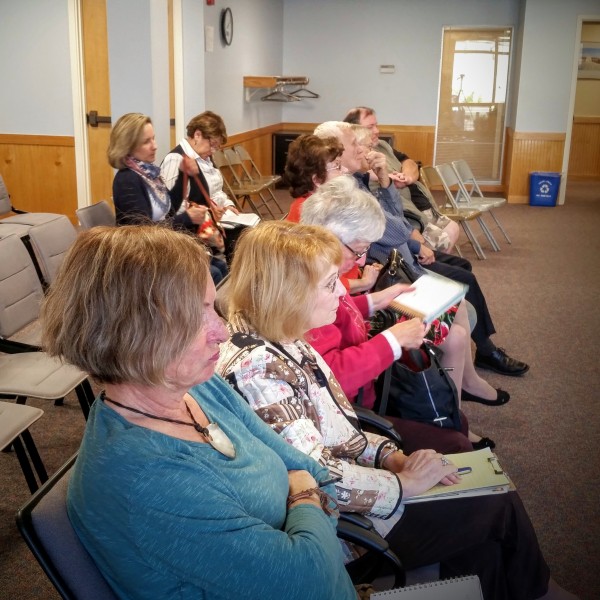 The meeting of the EFSB in Warwick also dealt with a short list of procedural motions. The Harrisville Fire District had entered a late motion to intervene, but were denied without prejudice. This motion gave attorney Richard Sinapi the opportunity to rise and speak to the board in favor of Harrisville, only to be told, for the second time, that there was no input allowed from attorneys or the public at this open meeting.
The meeting of the EFSB in Warwick also dealt with a short list of procedural motions. The Harrisville Fire District had entered a late motion to intervene, but were denied without prejudice. This motion gave attorney Richard Sinapi the opportunity to rise and speak to the board in favor of Harrisville, only to be told, for the second time, that there was no input allowed from attorneys or the public at this open meeting.
 Even as the Burrillville Town Council approved a resolution to oppose the siting and construction of Invenergy’s $700 million fracked gas and diesel oil burning power plant in their town, the next battle, over a proposed
Even as the Burrillville Town Council approved a resolution to oppose the siting and construction of Invenergy’s $700 million fracked gas and diesel oil burning power plant in their town, the next battle, over a proposed 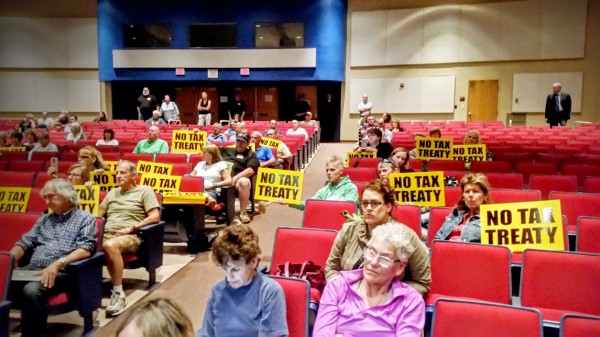
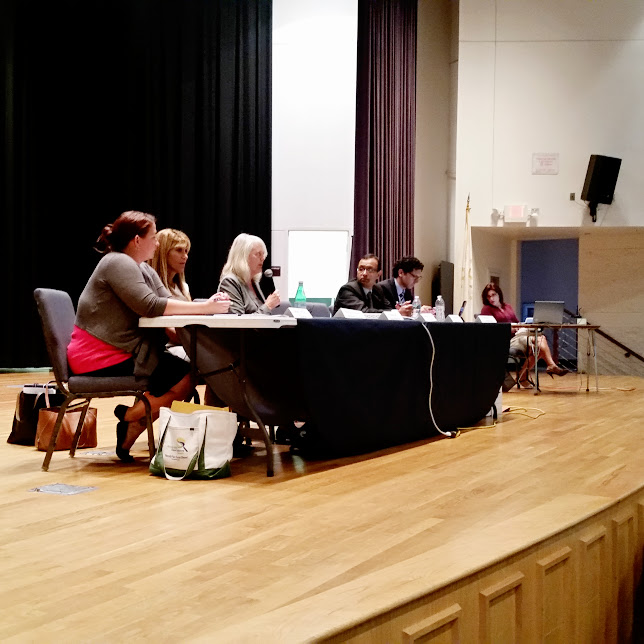
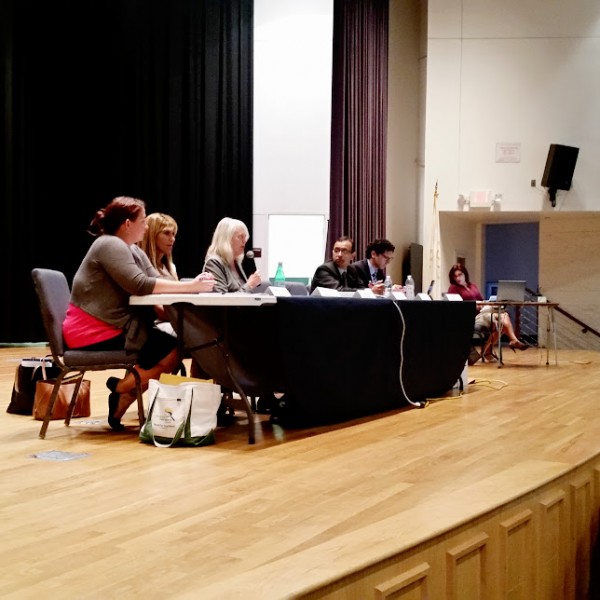 The Energy Facilities Siting Board (EFSB) public hearing in Warwick Wednesday evening, coming near the end of the process to decide the fate of Invenergy‘s proposed $700 million fracked gas and diesel oil burning power plant, was filled with almost philosophical reflection, with many speakers, who have sat through dozens of EFSB, town council, zoning and department meetings and honed their public speaking skills, commenting with a battle weary determination and steely resolve.
The Energy Facilities Siting Board (EFSB) public hearing in Warwick Wednesday evening, coming near the end of the process to decide the fate of Invenergy‘s proposed $700 million fracked gas and diesel oil burning power plant, was filled with almost philosophical reflection, with many speakers, who have sat through dozens of EFSB, town council, zoning and department meetings and honed their public speaking skills, commenting with a battle weary determination and steely resolve.


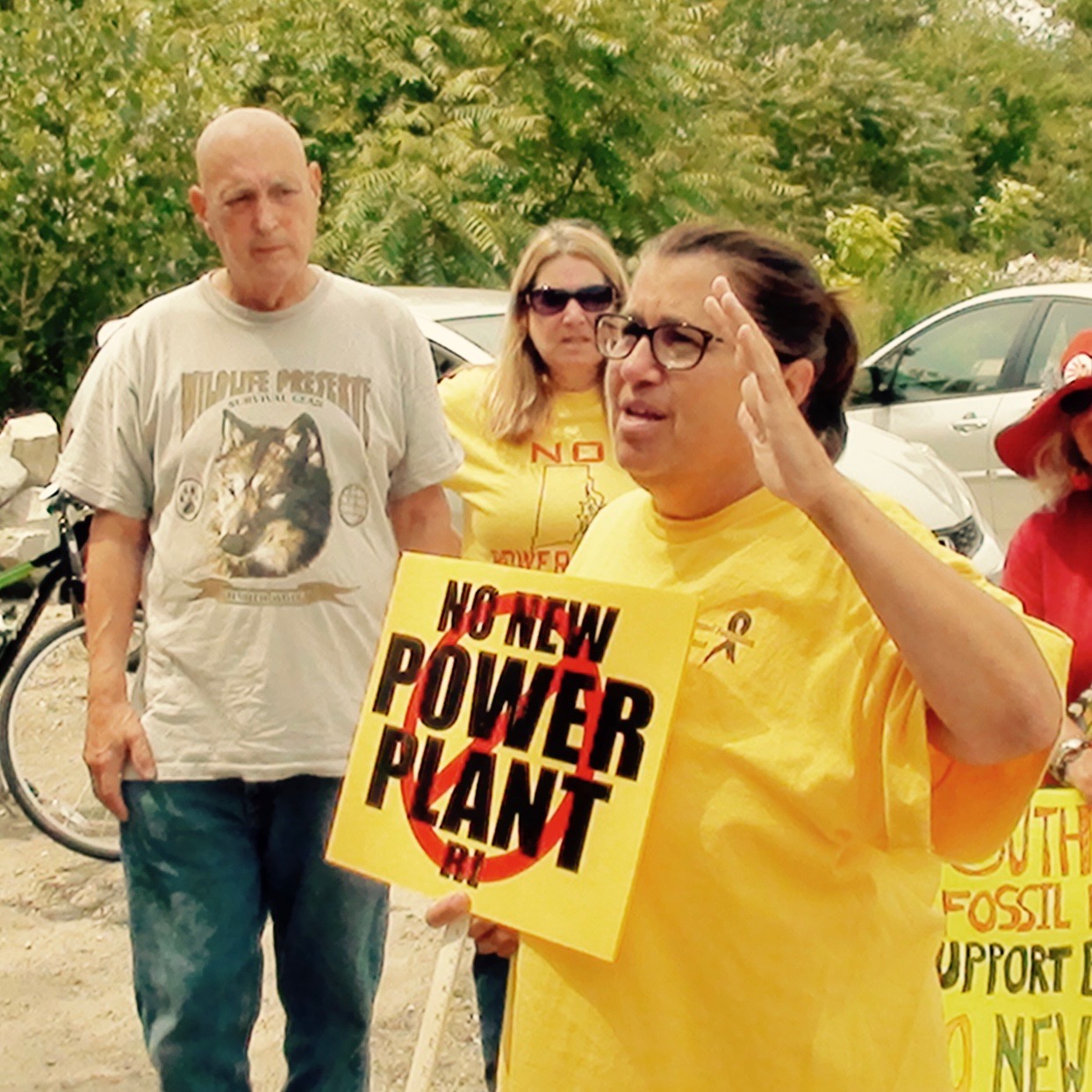
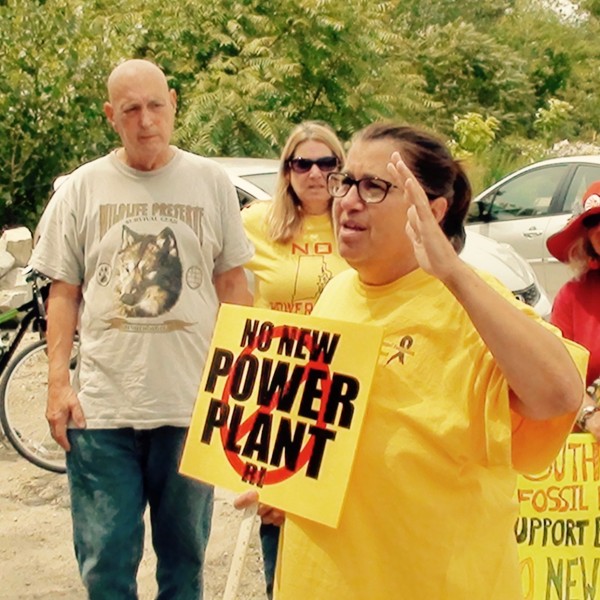 The Conservation Law Foundation‘s (CLF) senior attorney Jerry Elmer filed a
The Conservation Law Foundation‘s (CLF) senior attorney Jerry Elmer filed a 
 The Consumer Liaison Group (CLG) Meeting happens four times a year and its a chance for ISO-NE to exchange information with electricity consumers in New England. ISO-NE is the group that regulates our electricity markets and keeps the lights on by coordinating electricity generation and transmission. They run billion dollar markets and interact with companies like Spectra Energy, Invenergy, National Grid and Deepwater Wind. Pretty much every aspect of the process of getting electricity to your television is touched upon by ISO-NE in some way.
The Consumer Liaison Group (CLG) Meeting happens four times a year and its a chance for ISO-NE to exchange information with electricity consumers in New England. ISO-NE is the group that regulates our electricity markets and keeps the lights on by coordinating electricity generation and transmission. They run billion dollar markets and interact with companies like Spectra Energy, Invenergy, National Grid and Deepwater Wind. Pretty much every aspect of the process of getting electricity to your television is touched upon by ISO-NE in some way. The latest meeting of the CLG, in Providence on Thursday, featured a panel discussion with representatives from the four companies mentioned above. The panel was pulled together with the help of Douglas Gablinske, executive director of The Energy Council of Rhode Island (TEC-RI) an advocacy group for energy company concerns. Readers of RI Future may remember that Gablinske was a vocal
The latest meeting of the CLG, in Providence on Thursday, featured a panel discussion with representatives from the four companies mentioned above. The panel was pulled together with the help of Douglas Gablinske, executive director of The Energy Council of Rhode Island (TEC-RI) an advocacy group for energy company concerns. Readers of RI Future may remember that Gablinske was a vocal 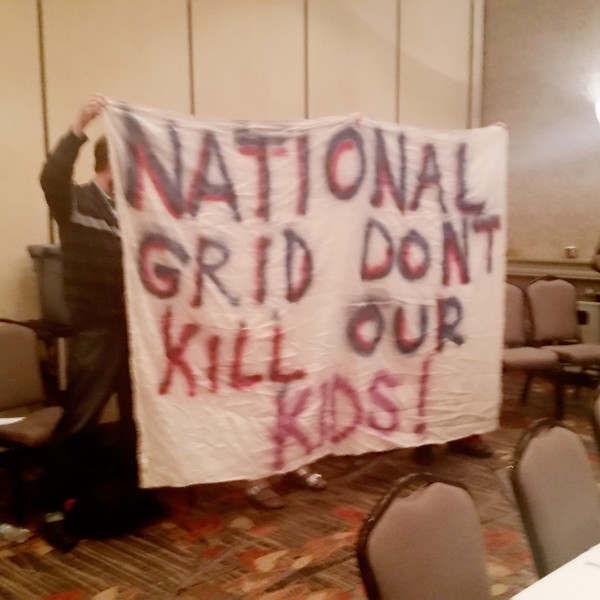

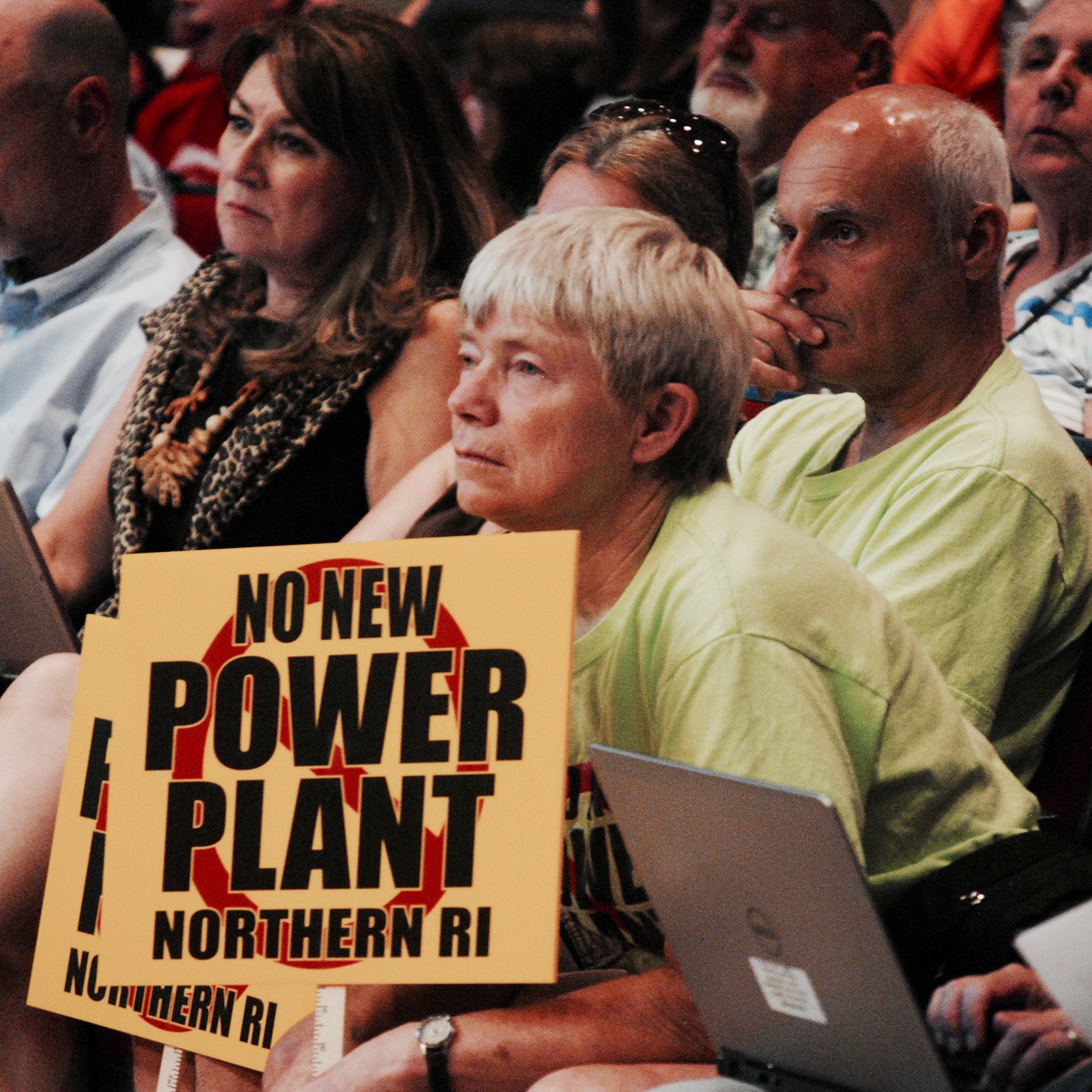
 Because Invenergy “has either refused or is unable to provide timely information regarding its proposed water supply… its Application should… be dismissed” writes Attorney Michael McElroy, representing the Town of Burrillville, in a
Because Invenergy “has either refused or is unable to provide timely information regarding its proposed water supply… its Application should… be dismissed” writes Attorney Michael McElroy, representing the Town of Burrillville, in a 

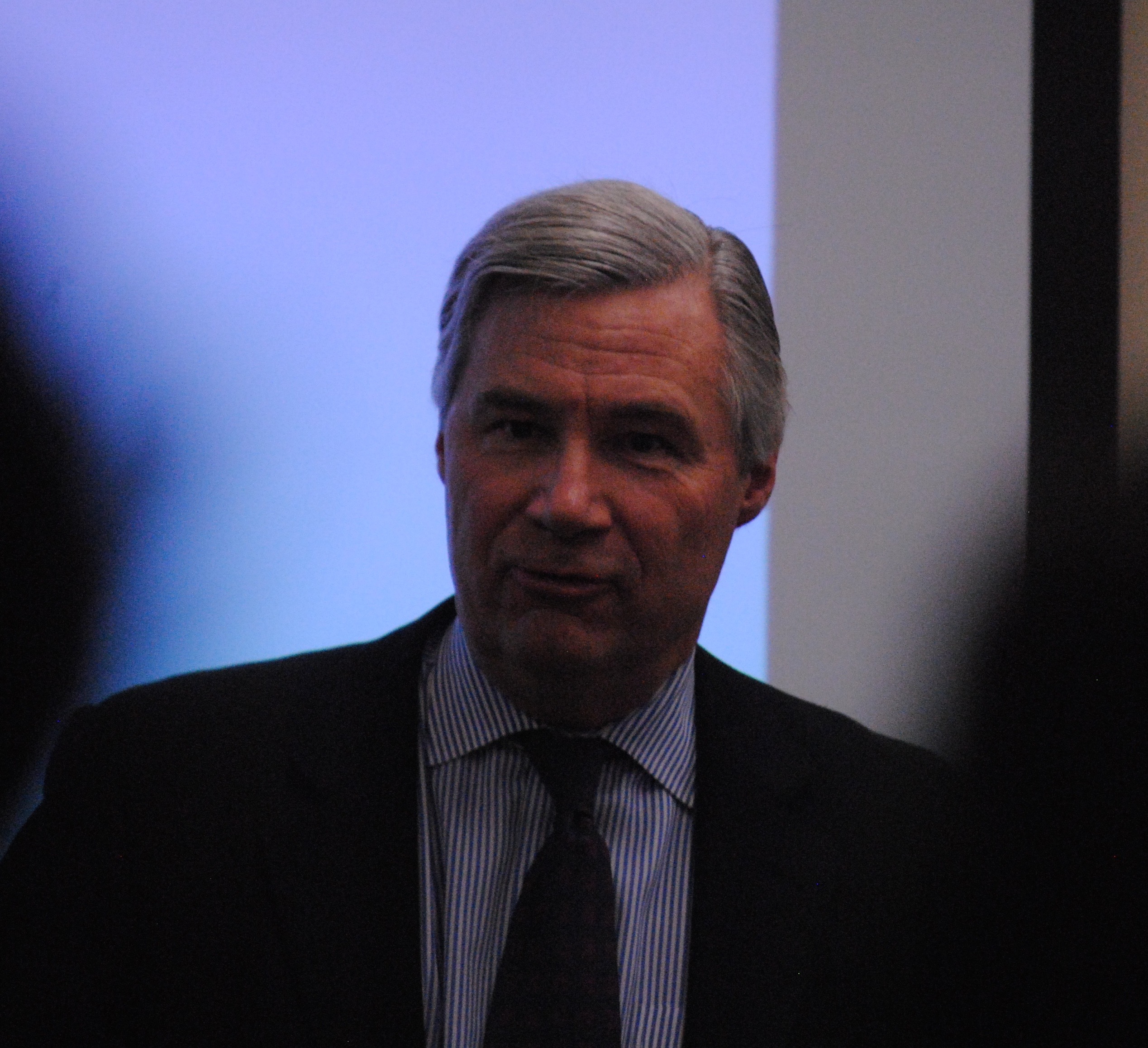
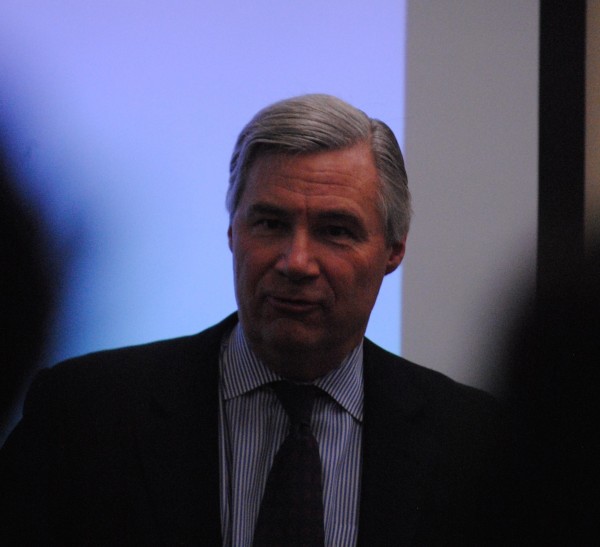

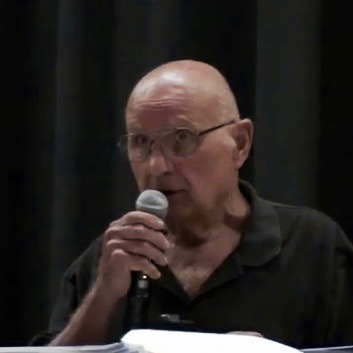

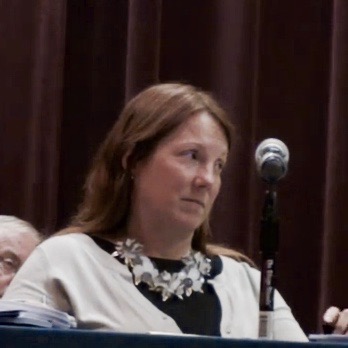
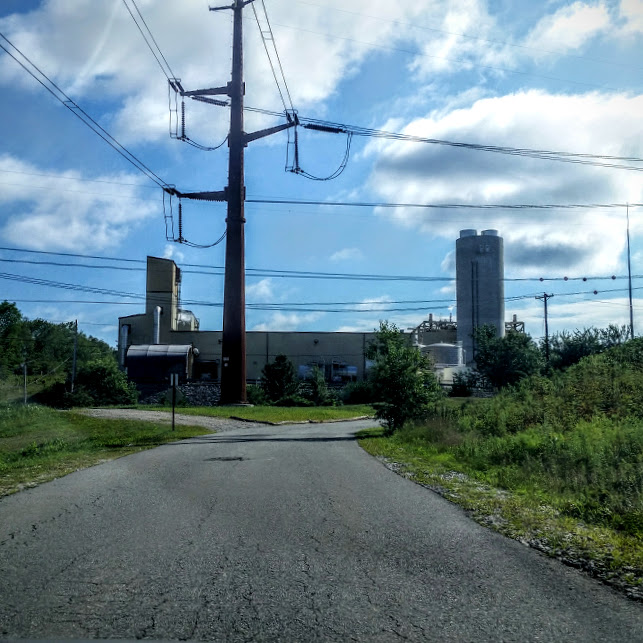
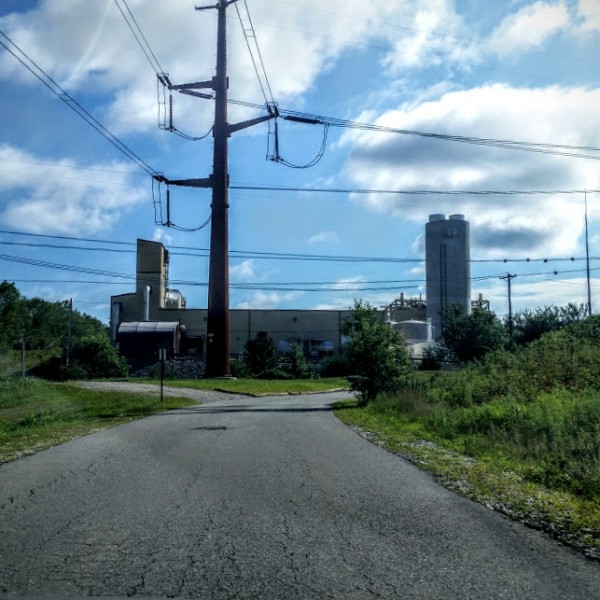


 The Burrillville Planning Board
The Burrillville Planning Board 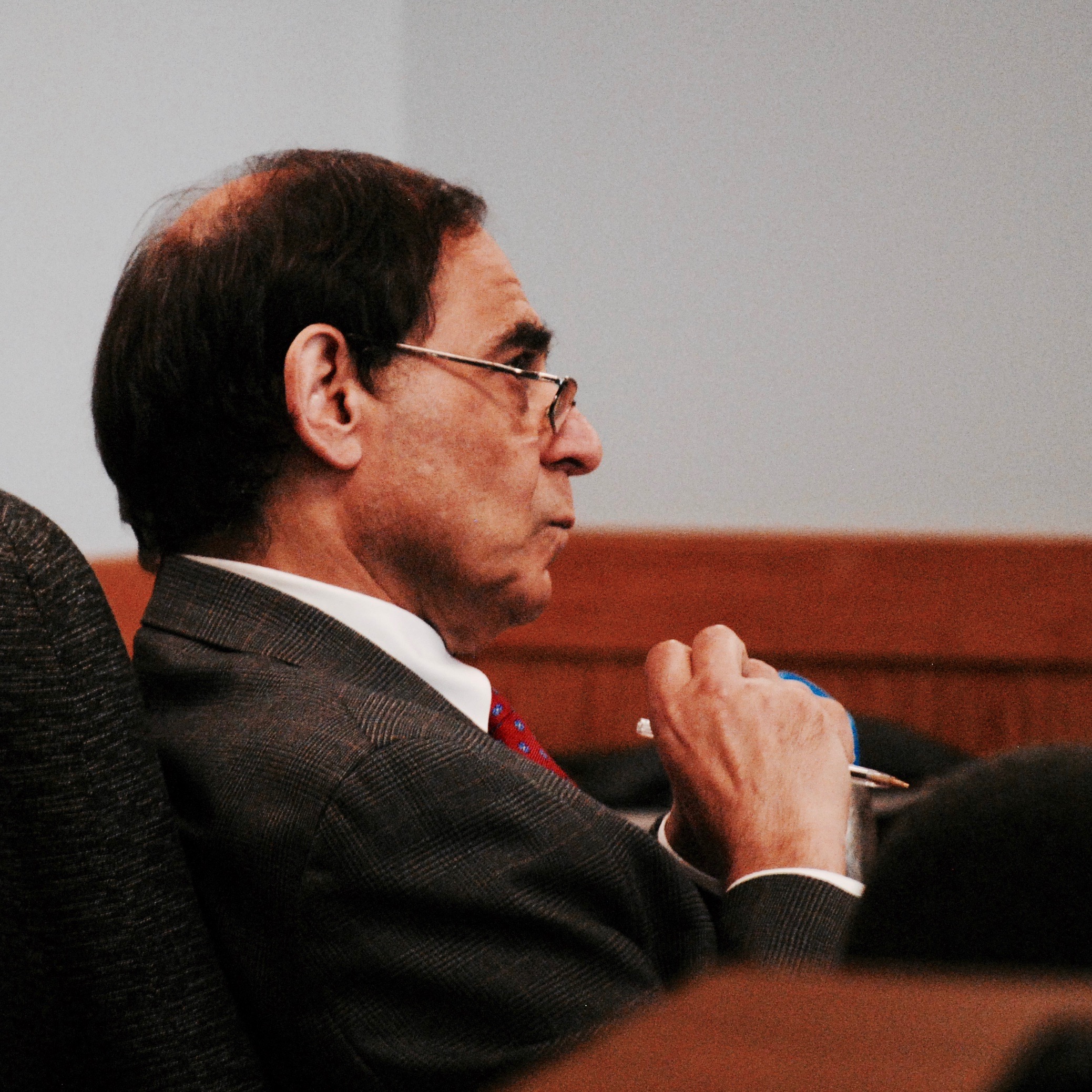
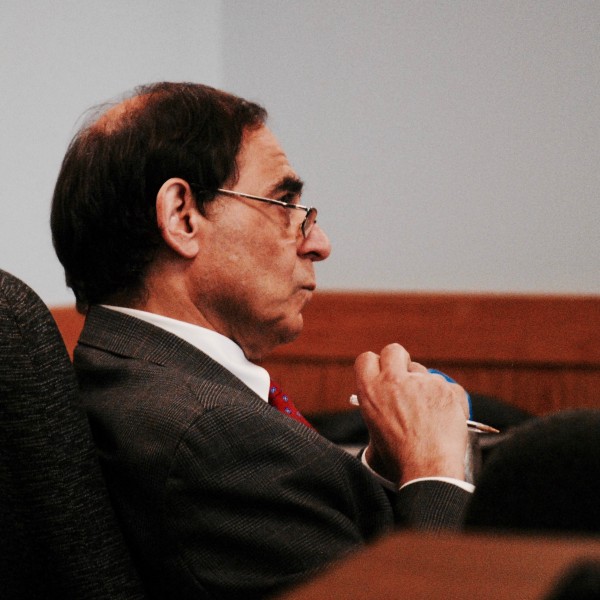

 The Rhode Island Department of Health (RIDOH) held a public comment hearing in Burrillville Tuesday to solicit opinions on the potential health effects of building Invenergy‘s proposed $700 million fracked gas and diesel oil burning power plant. RIDOH has been tasked by the Energy Facility Siting Board (EFSB) to create a non-binding advisory opinion on potential public health concerns relating to the project, including but not limited to biological responses to power frequency, electric, and magnetic fields associated with the operation of the power plant, and the potential impacts on the quality of drinking water associated with the construction and operation of the plant. The final report is due in early September.
The Rhode Island Department of Health (RIDOH) held a public comment hearing in Burrillville Tuesday to solicit opinions on the potential health effects of building Invenergy‘s proposed $700 million fracked gas and diesel oil burning power plant. RIDOH has been tasked by the Energy Facility Siting Board (EFSB) to create a non-binding advisory opinion on potential public health concerns relating to the project, including but not limited to biological responses to power frequency, electric, and magnetic fields associated with the operation of the power plant, and the potential impacts on the quality of drinking water associated with the construction and operation of the plant. The final report is due in early September.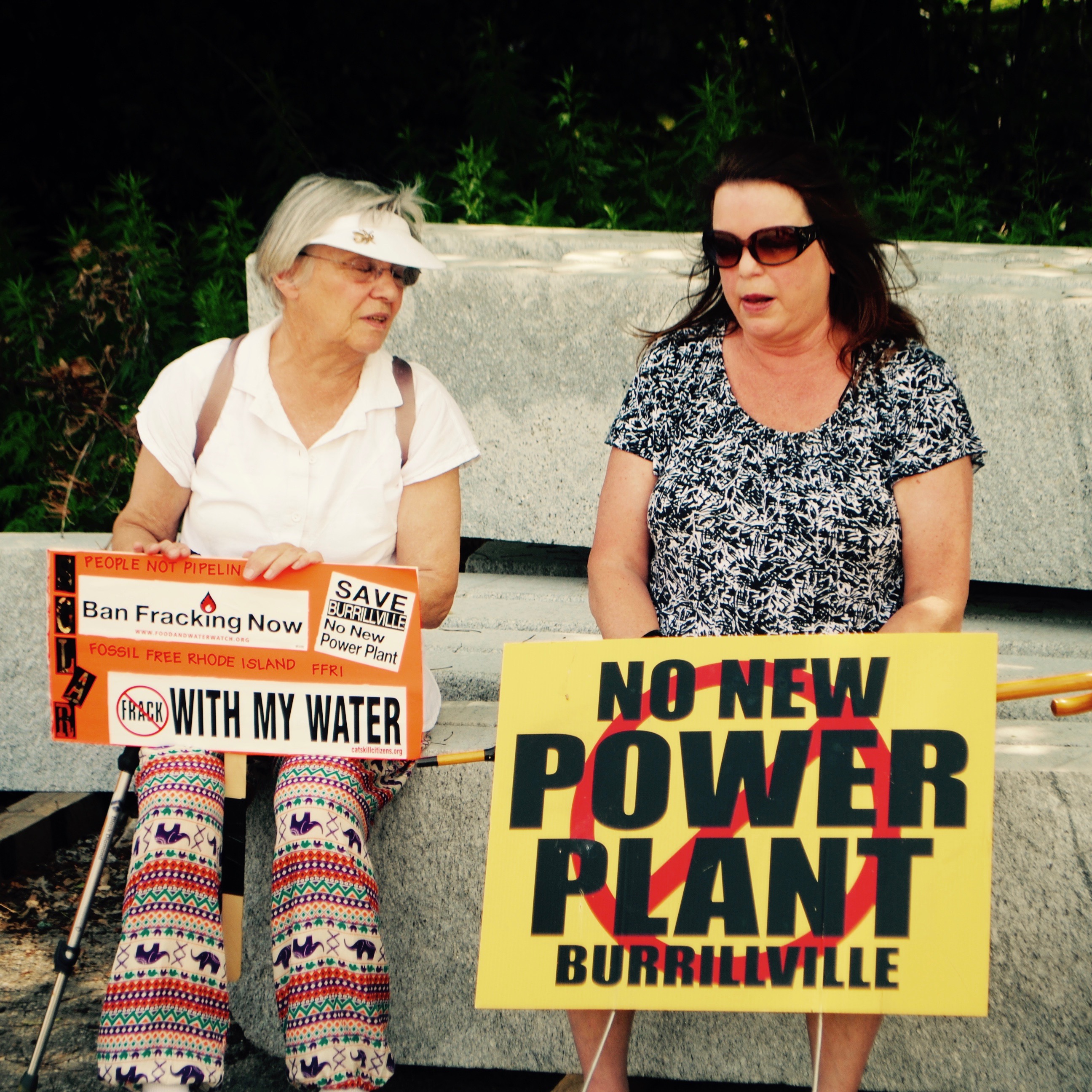
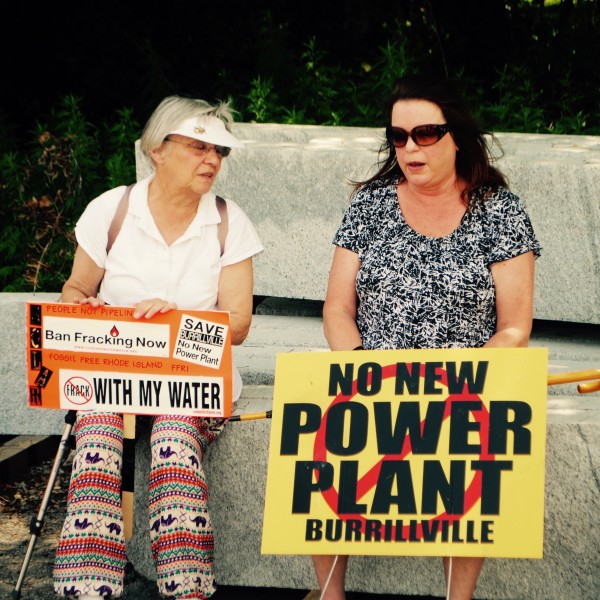 Invenergy’s proposed $700 million fracked gas and diesel oil burning power plant in Burrillville is running into some water problems. The Pascoag Utility District, at a
Invenergy’s proposed $700 million fracked gas and diesel oil burning power plant in Burrillville is running into some water problems. The Pascoag Utility District, at a